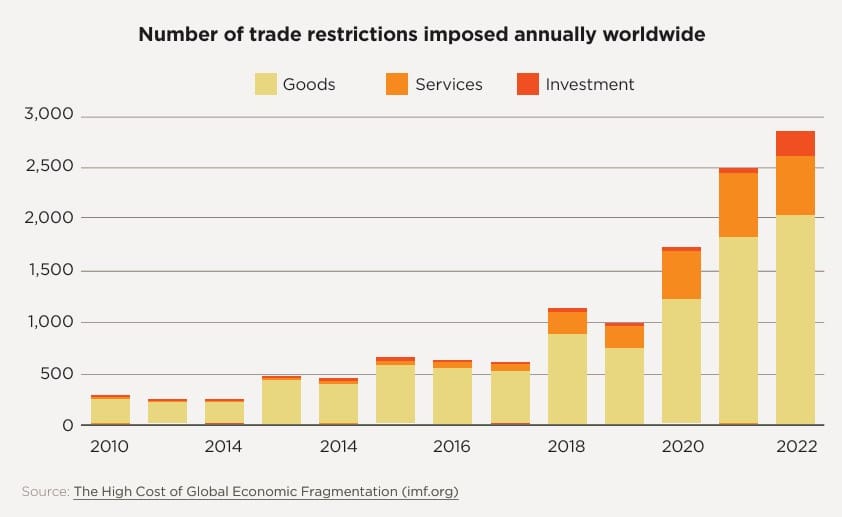
Posted on October, 31, 2024 at 07:30 pm
GRAINGROWERS has called for more investment in trade diversification and an increased focus on South-east Asian markets to combat the potential significant implications of next week’s United States presidential election on Australian grain growers.
Both Kamala Harris and Donald Trump have signaled in policy positions that they favour strategies diverging from traditional trade liberalisation.
In the Navigating Uncertainty: What the United States Election Means for Australia’s Grain Industry report released this week, GrainGrowers has raised concerns about the possible impacts on grain trade from increasing trade protectionism and geopolitical tensions.
While the US represents a small market for Australian grain exports, as the world’s largest economy, its trade policies directly influence global trade dynamics.
The report said that despite differing political philosophies, both Trump and Harris signal a move towards protectionist policies that could exacerbate US-China tensions, intensify trends toward friend-shoring, and further fragment the rules-based global trading order.
Trump has released his America First policy platform, which includes plans to impose a 60-percent tariff on Chinese imports and 10pc on all other countries, and openly criticises multilateral systems such as NATO and the World Trade Organization.
While Harris is more tempered in her views on world trade, the report said a spokesperson from her campaign had confirmed that she would “employ targeted and strategic tariffs” on key products.
She has also voiced opposition to the US-Mexico-Canada Agreement and the Trans-Pacific Partnership, citing worker and environmental concerns.

Figure 1: Trade restrictions increased substantially in the decade to 2020, and have grown further since the COVID-19 pandemic and the Russia-Ukraine war.
The report said the introduction of US tariffs has the potential to fuel a rise in protectionist measures, contributing to an increasingly unstable global trading environment.
“The Director General of the WTO, Ngozi Okonjo Iweala, has warned that Trump’s proposed 10pc import tariff could spark a “free-for-all,” jeopardising the stability and predictability of international trade,” the report said.
“This marked a significant escalation in trade tensions, demonstrating the domino effect of protectionist policies.”
This, alongside potential fragmentation of the WTO and persisting US-China tensions, could prove ongoing challenges for the grains industry.
GrainGrowers chief executive officer Shona Gawel said a proactive approach was essential to safeguard Australia’s grain industry against future global trade disruptions.
“With approximately 65-75pc of Australian grain exported annually, the sector is heavily exposed to international trade dynamics, with external shocks and events beyond its control,” Ms Gawel said.
“While the US election may be taking place half a world away at a time when GrainGrowers members are flat out harvesting, it is vitally important that potential changes in the trade landscape are recognised and fully considered.”
She said industry and the government should be proactive in supporting trade diversification measures as well as increasing engagement with South-east Asian markets.
“We need sustained investment in trade diversification programs and stronger partnerships with Southeast Asia to ensure our industry’s resilience in the face of rising global uncertainty.”
The report highlighted the success of pivoting towards alternative markets, such as Mexico, following the introduction of Chinese tariffs on Australian barley as an example of the benefits of market diversification.
“Even after Australia resumed barley exports to China, Mexico has remained the third-largest market for barley in 2023-24, demonstrating the value of free trade agreements for expanding opportunities for the grain industry,” the report said.
The report also calls for increased funding to support Australia’s Agricultural Counsellor Network, which plays a crucial role in expanding market access and addressing non-tariff barriers in key Southeast Asian markets.
Australia currently has agriculture counsellors based in Hanoi, Jakarta and Bangkok.
“Agriculture counsellors work in conjunction with biosecurity, exports and trade and market access teams to maintain and improve market access for Australian agricultural exports.”
Source: Grain Central